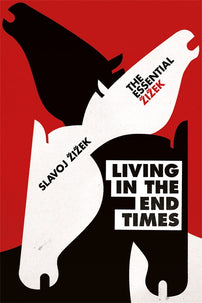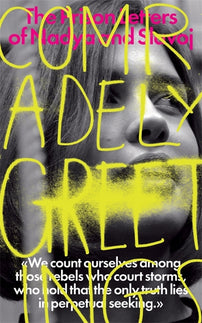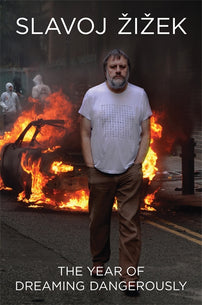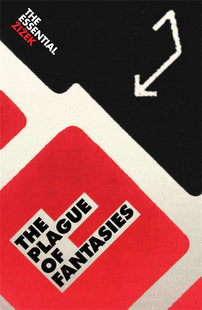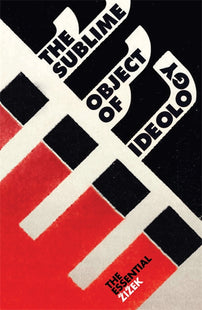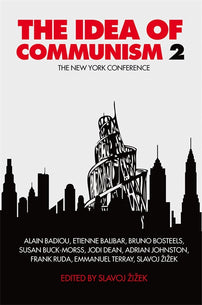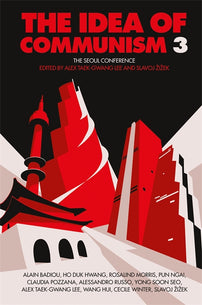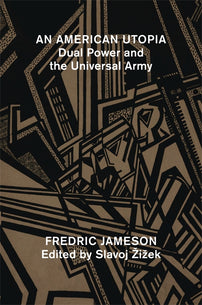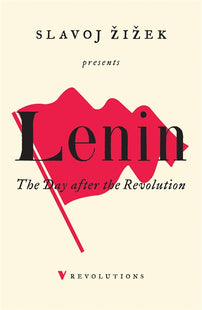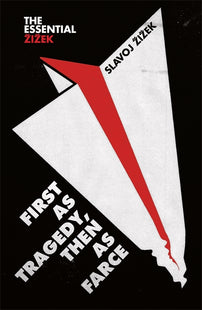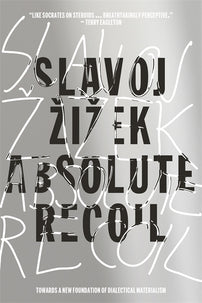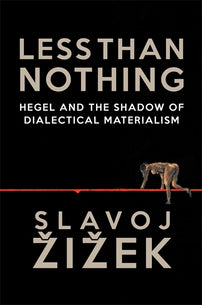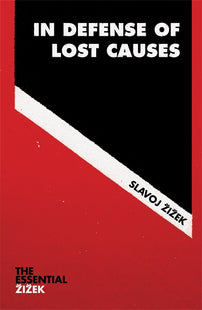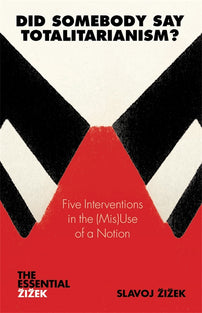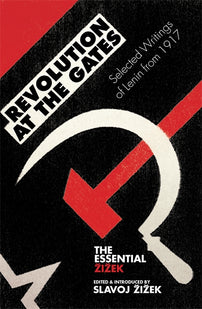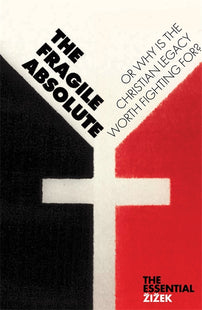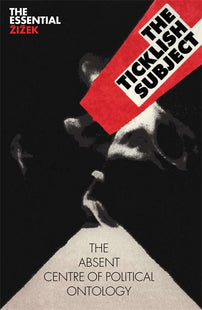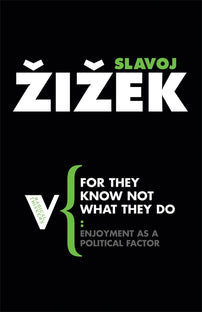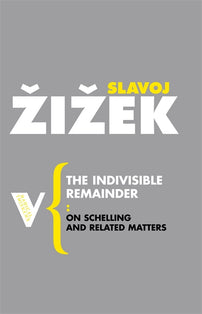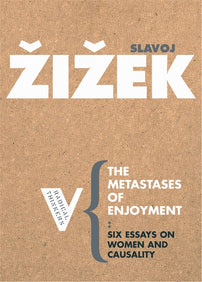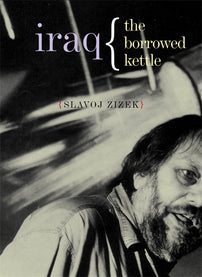Slavoj Žižek Bookshelf
Complete your Žižek bookshelf with this reading list! All 40% off (print books) and 60% off (ebooks) until January 4th.

From his first book The Sublime Object of Ideology, on human agency in a postmodern world, to his take on Hegel and philosophical materialism, Slavoj Žižek's ideas have electrified the fields of philosophy, critical theory and cultural studies.
Until January 4 (2022), at 23.59 EST, we have 40% off ALL our print books and 60% off all our ebooks (see full details here)! See all our reading guides here.
[book-strip index="1" style="buy"]Žižek argues that our collective responses to economic Armageddon correspond to the stages of grief: ideological denial, explosions of anger and attempts at bargaining, followed by depression and withdrawal. For this edition, Žižek has written a long afterword that leaves almost no subject untouched, from WikiLeaks to the nature of the Chinese Communist Party.
[book-strip index="2" style="buy"]V. I. Lenin’s originality and importance as a revolutionary leader is most often associated with the seizure of power in 1917. But, in this new study and collection of Lenin’s original texts, Slavoj Žižek argues that his true greatness can be better grasped in the last two years of his political life. With his characteristic brio and provocative insight, Žižek suggests that Lenin’s courage as a thinker can be found in his willingness to face this reality of retreat unflinchingly. In today’s world, characterized by political turbulence, economic crises and geopolitical tensions, we should revisit Lenin’s combination of sober lucidity and revolutionary determination.
[book-strip index="3" style="buy"]In an extraordinary exchange of letters, Nadezhda Tolokonnikova, imprisoned for taking part in Pussy Riot’s anti-Putin performance, and Slovenian philosopher Slavoj Žižek discuss artistic subversion, political activism, and the future of democracy via the ideas of Hegel, Deleuze, Nietzsche, and even Laurie Anderson.
[book-strip index="4" style="buy"]Call it the year of dreaming dangerously: 2011 caught the world off guard with a series of shattering events. While protesters in New York, Cairo, London, and Athens took to the streets in pursuit of emancipation, obscure destructive fantasies inspired the world’s racist populists in places as far apart as Hungary and Arizona, achieving a horrific consummation in the actions of mass murderer Anders Breivik.
[book-strip index="5" style="buy"]Modern audiovisual media have spawned a 'plague of fantasies', electronically inspired phantasms that cloud the ability to reason and prevent a true understanding of a world increasingly dominated by abstractions—whether those of digital technology or the speculative market. Into this arena, enters Žižek: equipped with an agile wit and the skills of a prodigious scholar, he confidently ranges among a dazzling array of cultural references—explicating Robert Schumann as deftly as he does John Carpenter—to demonstrate how the modern condition blinds us to the ideological basis of our lives.
[book-strip index="6" style="buy"]Slavoj Zizek's first book is a provocative and original work looking at the question of human agency in a postmodern world. In a thrilling tour de force that made his name, he explores the ideological fantasies of wholeness and exclusion which make up human society.
[book-strip index="7" style="buy"]Responding to Alain Badiou’s ‘communist hypothesis’, the leading political philosophers of the Left convened in London in 2009 to take part in a landmark conference to discuss the perpetual, persistent notion that, in a truly emancipated society, all things should be owned in common. This volume brings together their discussions on the philosophical and political import of the communist idea, highlighting both its continuing significance and the need to reconfigure the concept within a world marked by havoc and crisis.
[book-strip index="8" style="buy"]The first volume of The Idea of Communism followed the 2009 London conference called in response to Alain Badiou’s ‘communist hypothesis’, where an all-star cast of radical intellectuals put the idea of communism back on the map. This volume brings together papers from the subsequent 2011 New York conference organized by Verso and continues this critical discussion, highlighting the philosophical and political importance of the communist idea, in a world of financial and social turmoil. Contributors include Alain Badiou, Etienne Balibar, Bruno Bosteels, Susan Buck-Morss, Jodi Dean, Adrian Johnston, François Nicolas, Frank Ruda, Emmanuel Terray and Slavoj Žižek.
[book-strip index="9" style="buy"]In 2009 Slavoj Žižek brought together an acclaimed group of intellectuals to discuss the continued relevance of communism. Unexpectedly the conference attracted an audience of over 1,000 people. The discussion has continued across the world and this book gathers responses from the conference in Seoul. It includes the interventions of regular contributors Alain Badiou and Slavoj Žižek, as well as work from across Asia, notably from Chinese scholar Wang Hui, offering regional perspectives on communism in an era of global economic crisis and political upheaval.
[book-strip index="10" style="buy"]Mapping Ideology is a comprehensive reader covering the most important contemporary writing on the subject. Including Slavoj Žižek’s study of the development of the concept from Marx to the present, assessments of the contributions of Lukács and the Frankfurt School by Terry Eagleton, Peter Dews and Seyla Benhabib, and essays by Adorno, Lacan and Althusser, Mapping Ideology is an invaluable guide to the most dynamic field in cultural theory.
[book-strip index="11" style="buy"]Fredric Jameson’s pathbreaking essay “An American Utopia” radically questions standard leftist notions of what constitutes an emancipated society. Advocated here are—among other things—universal conscription, the full acknowledgment of envy and resentment as a fundamental challenge to any communist society, and the acceptance that the division between work and leisure cannot be overcome. To create a new world, we must first change the way we envision the world. Jameson’s text is ideally placed to trigger a debate on the alternatives to global capitalism. In addition to Jameson’s essay, the volume includes responses from philosophers and political and cultural analysts, as well as an epilogue from Jameson himself.
[book-strip index="12" style="buy"]Lenin’s originality and importance as a revolutionary leader is most often associated with the seizure of power in 1917. But, Žižek argues in his new study and collection of original texts, Lenin’s true greatness can be better grasped in the very last couple of years of his political life. Russia had survived foreign invasion, embargo and a terrifying civil war, as well as internal revolts such as at Kronstadt in 1921. With his characteristic brio and provocative insight, Žižek suggests that Lenin’s courage as a thinker can be found in his willingness to face this reality of retreat lucidly and frontally.
[book-strip index="13" style="buy"]In this take-no-prisoners analysis, Slavoj Žižek frames the moral failures of the modern world in terms of the epoch-making events of the first decade of this century. What he finds is the old one-two punch of history: the jab of tragedy, the right hook of farce. In the attacks of 9/11 and the global credit crunch, liberalism dies twice: as a political doctrine and as an economic theory. The election of Donald Trump only confirms the bankruptcy of a liberal order on its last legs. First as Tragedy, Then as Farce is a call for the left to reinvent itself in the light of our desperate historical situation.
[book-strip index="14" style="buy"]Philosophical materialism in all its forms – from scientific naturalism to Deleuzian New Materialism – has failed to meet the key theoretical and political challenges of the modern world. This is the burden of philosopher Slavoj Žižek’s argument in this pathbreaking and eclectic new work. Absolute Recoil is a startling reformulation of the basis and possibilities of contemporary philosophy. While focusing on how to overcome the transcendental approach without regressing to naïve, pre-Kantian realism, Žižek offers a series of excursions into today’s political, artistic, and ideological landscape, from Arnold Schoenberg’s music to the films of Ernst Lubitsch.
[book-strip index="15" style="buy"]For the last two centuries, Western philosophy has developed in the shadow of Hegel, an influence each new thinker struggles to escape. As a consequence, Hegel's absolute idealism has become the bogeyman of philosophy, obscuring the fact that he is the defining philosopher of the historical transition to modernity, a period with which our own times share startling similarities. Today, as global capitalism comes apart at the seams, we are entering a new period of transition.
In Less Than Nothing, the product of a career-long focus on the part of its author, Slavoj Žižek argues it is imperative we not simply return to Hegel but that we repeat and exceed his triumphs, overcoming his limitations by being even more Hegelian than the master himself.
[book-strip index="16" style="buy"]In this combative major new work, philosophical sharpshooter Slavoj Zizek looks for the kernel of truth in the totalitarian politics of the past. Examining Heidegger's seduction by fascism and Foucault's flirtation with the Iranian Revolution, he suggests that these were the 'right steps in the wrong direction.' On the revolutionary terror of Robespierre, Mao and the bolsheviks, Zizek argues that while these struggles ended in historic failure and horror, there was a valuable core of idealism lost beneath the bloodshed.
[book-strip index="17" style="buy"]In some circles, a nod towards totalitarianism is enough to dismiss any critique of the status quo. Such is the insidiousness of the neo-liberal ideology, argues Slavoj Žižek. Did Somebody Say Totalitarianism? turns a specious rhetorical strategy on its head to identify a network of family resemblances between totalitarianism and modern liberal democracy.
[book-strip index="18" style="buy"]In Revolution at the Gates, Slavoj Žižek locates the 1917 writings in their historical context, while his afterword tackles the key question of whether Lenin can be reinvented in our era of “cultural capitalism.” Žižek is convinced that, whatever the discussion—the forthcoming crisis of capitalism, the possibility of a redemptive violence, the falsity of liberal tolerance—Lenin’s time has come again.
[book-strip index="19" style="buy"]Liberals and conservatives proclaim the end of the American holiday from history. Now the easy games are over; one should take sides. Žižek argues this is precisely the temptation to be resisted. In such moments of apparently clear choices, the real alternatives are most hidden. Welcome to the Desert of the Real steps back, complicating the choices imposed on us. It proposes that global capitalism is fundamentalist and that America was complicit in the rise of Muslim fundamentalism. It points to our dreaming about the catastrophe in numerous disaster movies before it happened, and explores the irony that the tragedy has been used to legitimize torture. Last but not least it analyzes the fiasco of the predominant leftist response to the events.
[book-strip index="20" style="buy"]What is the contemporary legacy of Gramsci's notion of Hegemony? How can universality be reformulated now that its spurious versions have been so thoroughly criticized? In this ground-breaking project, Judith Butler, Ernesto Laclau and Slavoj Zizek engage in a dialogue on central questions of contemporary philosophy and politics. Their essays, organized as separate contributions that respond to one another, range over the Hegelian legacy in contemporary critical theory, the theoretical dilemmas of multiculturalism, the universalism-versus-particularism debate, the strategies of the Left in a globalized economy, and the relative merits of post-structuralism and Lacanian psychoanalysis for a critical social theory.
[book-strip index="21" style="buy"]The contributors bring to bear an unrivaled enthusiasm and theoretical sweep on the entire Hitchcock oeuvre, analyzing movies such as Rear Window and Psycho. Starting from the premise that ‘everything has meaning,’ the authors examine the films’ ostensible narrative content and formal procedures to discover a rich proliferation of hidden ideological and psychic mechanisms. But Hitchcock is also a bait to lure the reader into a serious Marxist and Lacanian exploration of the construction of meaning.
[book-strip index="22" style="buy"]The wager of Zizek's The Fragile Absolute – published here with a new preface by the author – is that Christianity and Marxism can fight together against the contemporary onslought of vapid spiritualism. The revolutionary core of the Christian legacy is too precious to be left to the fundamentalists.
[book-strip index="23" style="buy"]A specter is haunting Western thought, the specter of the Cartesian subject. In this book Slavoj Zizek unearths a subversive core to this elusive specter, and finds within it the indispensable philosophical point of reference for any genuinely emancipatory project.
[book-strip index="24" style="buy"]For They Know Not What They Do seeks to understand the status of enjoyment within ideological discourse, from Hegel through Lacan to these political and ideological deadlocks. The author's own enjoyment of “popular culture” makes this an engaging and lucid exposition, in which Hegel joins hands with Rossellini, Marx with Hitchcock, Lacan with Frankenstein, high theory with Hollywood melodrama.
[book-strip index="25" style="buy"]The Indivisible Remainder begins with a detailed examination of the two works in which Schelling's speculative audacity reached its peak: his essay on human freedom and his drafts on the “Ages of the World.” After reconstituting their line of argumentation, Slavoj Žižek confronts Schelling with Hegel, and concludes by throwing a Schellingian light on some “related matters”: the consequences of the computerization of daily life for sexual experience; cynicism as today's predominant form of ideology; the epistemological deadlocks of quantum physics. Although the book is packed with examples from politics and popular culture, it signals a major shift towards a systematic concern with the basic questions of philosophy and the roots of the crisis of our late-capitalist universe, centred around the enigma of modern subjectivity.
[book-strip index="26" style="buy"] [book-strip index="27" style="buy"]Iraq: The Borrowed Kettle – which can be considered as a sequel to Žižek's acclaimed post-9/11 Welcome to the Desert of the Real – analyzes the background that such inconsistent argumentation conceals and, simultaneously, cannot help but highlight: what were the actual ideological and political stakes of the attack on Iraq? In classic Žižekian style, it spares nothing and nobody, neither pathetically impotent pacifism nor hypocritical sympathy with the suffering of the Iraqi people.
